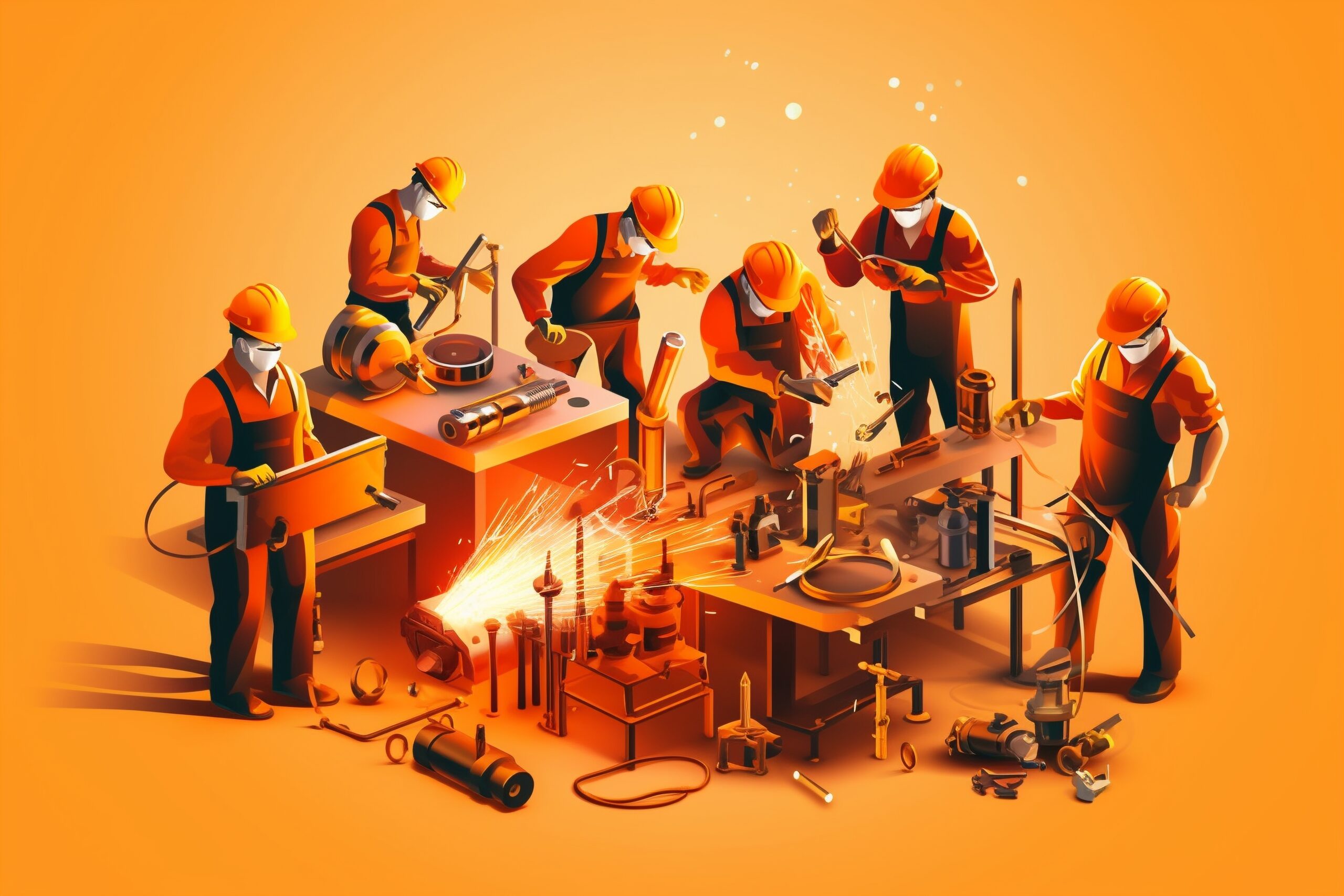International Labour Day: A Timely Reflection for SMEs in the Age of Automation

Observed globally on May 1st, International Labour Day commemorates the historic struggle of workers for fair wages, safe working conditions and reasonable working hours. For Small and Medium Enterprises (SMEs), which are the backbone of most economies and key employment generators, this day is more than symbolic. It is a strategic reminder to reflect on their labour practices and the evolving future of work.
As digital transformation accelerates and Industry 5.0, robotics and automation reshape traditional jobs, SMEs are confronted with new challenges – balancing productivity, human employment and ethical adoption of technology. Labour Day, in this context, becomes a mirror to assess how far we’ve come – and how inclusive the future of work will be.
In India, laws such as the Factories Act, Minimum Wages Act, Employees’ Provident Fund (EPF), and Employee State Insurance (ESI) have evolved to support labour welfare. For SMEs, compliance with these laws has historically posed administrative and cost challenges – yet also offered the advantage of employee retention, trust and reputation.
Why Labour Day Still Matters for SMEs
While larger corporations often have dedicated compliance and HR teams, SMEs frequently operate with lean structures. Yet, Labour Day reinforces that employee well-being is not a luxury, but a business enabler. In fact, it matters now more than ever.
Talent Retention and Loyalty
Employees today seek more than just wages – they seek purpose, security and fairness. Labour-friendly SMEs tend to report lower attrition and higher commitment from staff.
Legal Risk Management
Non-compliance with labour laws can lead to heavy penalties, business disruption or reputational damage – issues that SMEs are often less equipped to absorb.
Social Perception and Brand Equity
With growing transparency, labour practices are increasingly scrutinized by customers, partners and investors. Ethical labour practices boost SME credibility.
Automation and Industry 5.0: A New Frontier
The Fourth Industrial Revolution (Industry 4.0) introduced automation, data analytics and smart machines. Industry 5.0 goes further – emphasizing collaboration between humans and machines, not just replacement.
What Does This Mean for SMEs?
Job Redesign, Not Job Loss Alone
While automation may eliminate repetitive roles, it also creates new roles in machine supervision, data analysis and creative tasks. Labour Day, thus, becomes an opportunity to rethink job roles rather than mourn their disappearance.
Upskilling is Now Essential
Robots and AI are taking over manual and cognitive tasks. SMEs must now invest in upskilling their workforce – not just for competitiveness, but for survival. Governments are already pushing for skilling programs (e.g., Skill India, Digital Saksharta Abhiyan) – but SMEs must integrate these into their own growth models.
Ethics and Inclusion in Tech-Driven Workplaces
As SMEs adopt robots in assembly lines or AI in customer service, Labour Day reminds us that the human element must remain central. Tech inclusion should not widen the inequality gap but bridge it.
India’s Labour Reforms and the Digital Transition
India’s recent move to consolidate 29 labour laws into 4 labour codes is part of a push toward simplification and digital transparency. These codes – covering wages, social security, industrial relations and occupational safety – are aimed at helping both employers and workers in a tech-driven economy.
For SMEs, this is both a challenge and an opportunity. The challenge is in navigating new digital compliance norms, whereas the opportunity lies in leveraging platforms like Shram Suvidha, ESIC portals and private HR tech to manage workers more efficiently.
A Human-Centric Approach to the Future of Work
Industry 5.0 signals a shift away from the “humans vs. machines” narrative to a “humans with machines” reality.
For SMEs, this means:
- Redesigning workflows to combine efficiency (via automation) with empathy (via human insight).
- Reskilling workers rather than replacing them.
- Strengthening workplace culture with inclusion, collaboration and continuous learning.
SMEs are uniquely positioned to lead this transition due to their agility and closeness to their employees. Unlike large bureaucratic organizations, SMEs can quickly test and implement people-friendly tech transitions.
Reclaiming Labour Day in the Digital Age
International Labour Day is not just about looking back at the victories of the past. For SMEs, it is a moment to look ahead – to the challenges of automation, the promise of Industry 5.0 and the need for inclusive, tech-integrated workplaces.
The future of labour in SMEs will be defined not by how many people machines replace, but by how many people businesses reskill, retain and elevate. Labour Day 2025 reminds us that sustainable SME growth hinges not only on productivity tools – but on people-first thinking.











